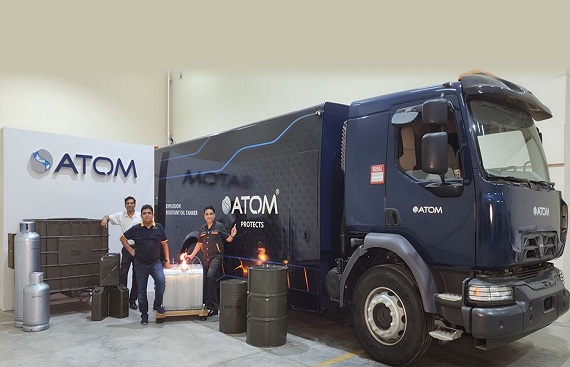Tech startup Atom Alloys plans to to scale up exports of fuel tank safety devices
By
siliconindia | Thursday, 04 May 2023, 00:22 Hrs

After getting approval from the authorities in the US, Japan, and the Middle East for its “Advanced Explosion Prevention System” designed for fuel tanks used to store gasoline, kerosene, and aviation fuel, the technology startup Atom Alloys intends to expand its exports. “Atom has successfully received approvals from companies in the United States, Japan and the Middle East. (We) are going to scale up export and production in these markets very soon,” CEO Atom Alloys Ajit Tharoor said in a statement.
Under India’s Startup India program, Atom Alloys was incorporated in 2016 on the advice of the Indian Institute of Science in Bangalore. The company serves as a registered supplier/vendor of explosion prevention technology to organizations including Tata Motors and GE Power.
Atom Alloys distributes its products to countries such as Japan, the Middle East, Mexico, and the USA. The company maintains production facilities in Mumbai, India, and the UAE, in addition to offices situated in the USA, Oman, Mauritius, and Japan.
At the Southwest Research Institute (SwRI) in Texas, USA, a fuel container equipped with Atom’s AEPS underwent successful testing. At the US Army TARDEC (Tank Automotive Research, Development, and Engineering Center) laboratory, the Southwest Research Institute (SwRI) provides cutting-edge research and engineering services to various government agencies, including the US Army, Department of Defense, Department of Energy, and US Coast Guard.
Atom Alloys mainly serves the civilian, security, and military sectors by delivering advanced technology for preventing explosions in fuel tanks, lubricant storage, and bulk fuel containers that store hydrocarbon fuels like gasoline, diesel, kerosene, and aviation fuel.
Initially developed for the Bulletproof Tata Safari fuel tanks of SPG (Special Protection Group), the ATOM Explosion Resistant Fuel Tank was subsequently adapted for industry-specific applications like fuel bowsers, fuel skids, above-ground fuel stations, and large mobile fuel storage.

